Debrecen, August 9-11, 2005.
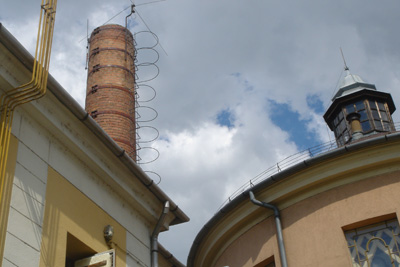
Kids at an outdoor restaurant play “K÷, papir, ollo,” meaning “Stone, paper, scissors.”
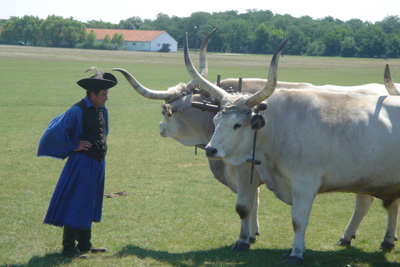
This far-east region of Hungary is like the Wild West of the US in that they used to have horsemen tending large herds of longhorn gray cows.
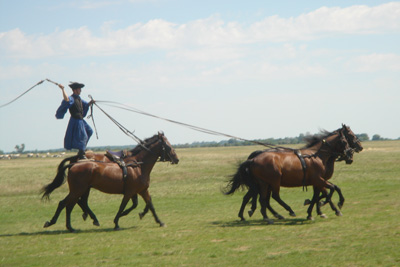
Their free range is called “puszta.”
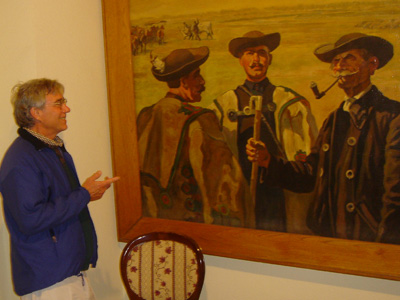
Big beautiful 1910 oil-paintings of horses and cowboys adorn the marble staircase of our grand hotel, Aranyi Bika (Gold Bull). It’s kind of like being in Billings, Montana, with the huge, open sky. We’re excited to be in Debrecen at the far east end of Hungary, almost in Romania or the Ukraine.
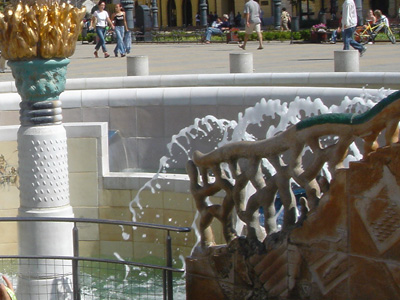
I like this gnarly fountain, with a railing that looks like the time-frozen water. I’m writing this in the big (triangular) Calvin Square of Debrecen at a table in the Gara Cukraszda, a cake and ice-cream shop. “Cukrasz” means “sugar.”
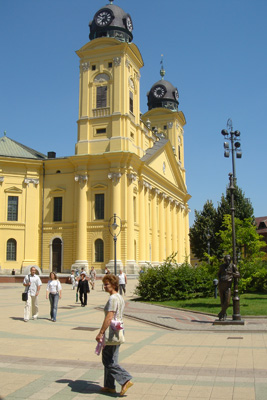
The enormous yellow two-toned Calvinist church of Debrecen is at the end of the square. Most of the Hungarian churches are painted yellow, they love coloring their buildings, as I mentioned before: yellow, pink and green.
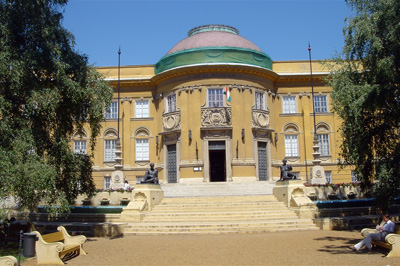
The Deri museum. Very bossy guards, guilt-provoking entreaties that I visit every room, these women are like aunts nagging you to take another helping of dessert. Dull metal artifacts, age-browned three-tined wooden pitchforks. The jewel of the museum is three large canvases by Munkßcsy: Christ and Pilate, Ecce Home, and Golgotha.
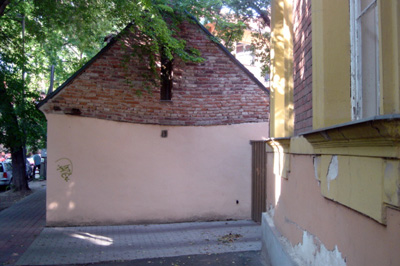
I’m getting more of a sense of how Hungarian my wife is. In Debrecen we went to a handicrafts center, and two women her age were making cut-out felt appliquķ items. She started talking Hungarian with them and they were so interested in her. They kept gently plying her with further questions, as fascinated with my California-Hungarian as if she were an exotic bright-feathered macaw flown in through an open window to perch on the back of a chair.
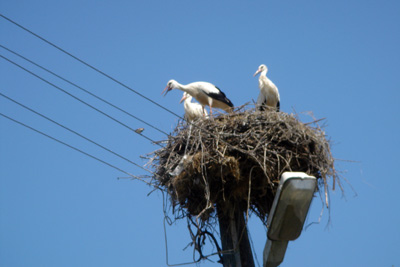
I sit in a courtyard in Debrecen, the Reformed theology college, dancing pine branches all around me.
I compare the old library here to the nanomachines dreams of the extropians. The lovely quiet books, half a millennium old. Idiocy to turn trees into paper, and even greater idiocy to turn paper into nanomachines.
That picture's of storks on a power pole in the puszta. Think of the storks as humans, pecking at the sparrow nanonmachines.
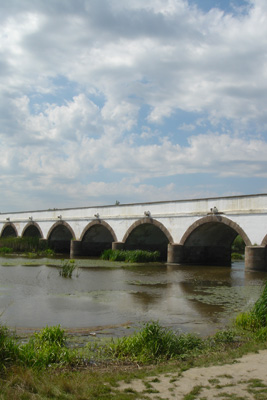
What are the thoughts of the nanomachine clouds? Like cellular automata, BZ scrolls and gliders. Walker: intelligence = memory. The fluttering leaf is always saying the same things, or so it seems to me from the outside. But the tree is growing new leaves, twigs and branches as time goes on, fed by the light-eating leaves.
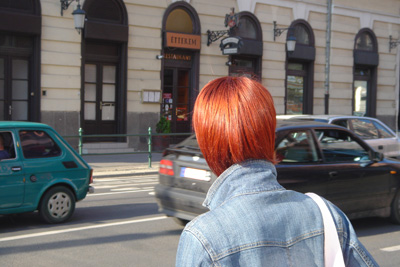
Lots of Hungarian women dye their hair red, it’s like the upiquitous blonde dye of California. Reds: cherry, strawberry, purple, violet, raspberry, every imaginable shade.
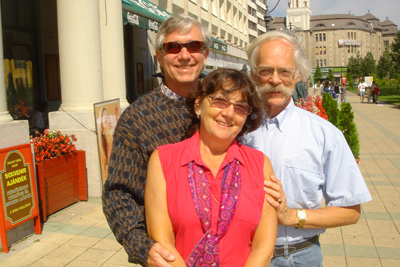
Thanks to the international SF connection, I met up with Donald and Csilla Morse, who teach in Debrecen, Donald being involved with the International Conference for the Fantastic in the Arts.
Always amazing to roll into a burg at the ass-end of nowhere and find it full of people doing their thing. The locals are into their soccer team today, Team Debrecen is playing a big-ass game against Manchester, it’s being televised on a giant screen set up in Calvin Square on the steps of that big yellow Reformed church tonight. We can see it out the window in the hotel above the Cukraszda. We have an haut-relief of a puszta longhorn on the bedroom wall.
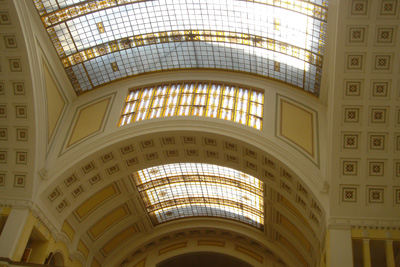
At Donald's urging, we go see the amazing train-station-like Debrecen University. And then, walking around town we enter yet another church. A fat man is just inside the door, inert, like a fish in the shadow of a rock, hanging there. And a hunchbacked little old man is staring at the Virgin and Jesus in a glass case. Perhaps he’s praying for a miracle.
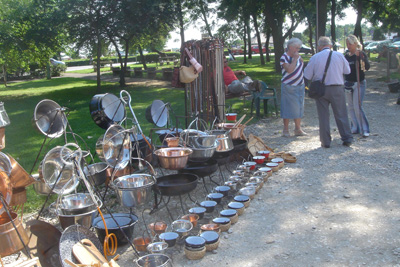
I had puszta-style gulyasch (goulash) for supper, with caraway seeds, meet from those longhorned grass-fed gray cattle, potatoes and dumplings, it was unspeakably delicious. Traditionally, gulyasch is made in an iron kettle hanging from a three-bar metal tripod over a fire. It told the waiter, “Holnap meg gulyasch,” meaning, “Tomorrow more goulash.”








